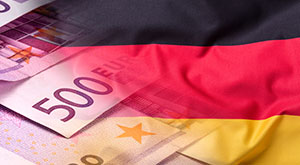Work Etiquette in Germany
Organisational Structure & Management Style
The German workplace is hierarchical, with job roles compartmentalised, rules and procedures imperative and decision-making typically top-down. At the boardroom level there may be a more committee-based approach to defining strategy, but once agreed it will be filtered through the organisation in a direct and authoritative manner. Communication channels are well-ordered, ensuring that every team member knows what is expected of them, although the system overall can be inflexible and therefore slow to change.
Despite their relatively short hours, Germans are hardworking and efficient. Managers usually have proficiency in the industry they work in, although a large part of their job is to delegate work to the most appropriate person. Staff and management are not usually familiar or close, but employees expect managers to look after them and communicate clearly to ensure the team succeeds. Germans are direct communicators and have a tendency to express opinions or criticise ideas openly. This can sometimes be perceived as aggressive or rude, but should not be taken personally.
Formality & Relationships
People in Germany can appear extremely formal in business situations to begin with. Titles and surnames are generally the norm for initial introductions, so address people as Herr (Mr) or Frau (Mrs/Ms), or use their professional or academic titles. If you are communicating in German, use the formal ‘Sie’ pronoun rather than ‘Du’ until invited to do otherwise. It is usually advisable to keep communication direct and to the point, although humour can be appreciated when appropriate.
Germans value their privacy and most prefer to keep their public and private lives separate. Rapport is not considered essential for successful working relationships, just mutual understanding and common goals. This lack of intimacy can be perceived as cold or aloof, but in reality it is simply an extension of a characteristic directness and formality.
In a culture that values efficiency and planning, it is important to respect people’s time. Punctuality is therefore imperative, so avoid being early or late as this will disrupt the plans of others. Meetings, appointments or conference calls should be booked well in advance and any changes to the schedule communicated clearly to all parties with as much notice as possible.
In Germany, it’s usually best to avoid asking personal questions of your colleagues as many people find this uncomfortable. You should also remember that to some people German mannerisms can seem unfriendly, but this may not be the case at all so try not to take offence or react negatively.
Greetings & Meetings
When introductions are made the hierarchy is usually respected. The most senior people are introduced and greeted first, although everyone in the room should then be greeted in turn. A firm handshake is the norm, but greetings are usually brief and then it is straight on to business with minimal small talk. Business cards may be exchanged at any point and without ceremony.
Business meetings in Germany are usually highly-structured and stick to the agreed agenda. Small talk is not common as most people want to get on with the matter at hand. Businesses in Germany place a heavy emphasis on planning, consultation and risk evaluation, so Germans will want to have written documentation confirming any proposals or plans before they make decisions. It is important to prepare thoroughly for meetings, especially if you are presenting an idea or concept – and always be ready for challenging questions. When meetings close, some Germans signal their approval by rapping their knuckles on the table.
Dress Code
Business dress in Germany is typically understated, with most people dressing smartly for work. Traditional business suits remain commonplace, but more and more companies are taking a relaxed approach and some will allow business casual or even casual dress, so it’s best to check ahead of a meeting or when starting a new job.
Language & German Courses
Although German is the dominant language of the country, the majority of people in Germany have an extremely good understanding of English and can speak the language fluently. Many are happy to conduct business in English, but it is always worth checking beforehand in case translation is required – particularly when contracts or official documents are involved. English is often spoken in academia, however it would be beneficial to learn German for life outside of academia and future careers. See German Language courses information.
Max Saved Jobs Reached
A maximum of 500 Saved Jobs can be created against your account. Please remove an existing Saved Job in order to add a new Saved Job.
Manage Saved Jobs








